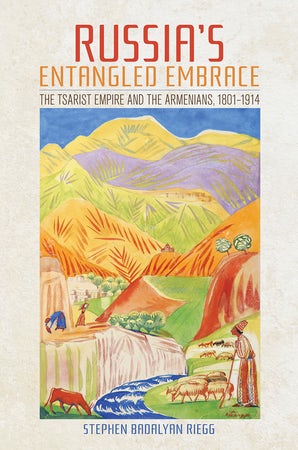"Boundaries of History", Ab Imperio Award 2020: Stephen Riegg, Assistant Professor of History of the Texas A&M University, presents his book "Russia’s Entangled Embrace: The Tsarist Empire and the Armenians, 1801-1914"
On September 30 th the series of research seminar ‘Boundaries of History’ is continuing with the presentation of the book “Russia’s Entangled Embrace: The Tsarist Empire and the Armenians, 1801-1914” by Stephen Riegg, Assistant Professor of History of the Texas A&M University (Ab Imperio Award 2020 winner in the nomination "Best book")

Registration
When: September 30, 18:30 (UTC+3)
Where: This is a Zoom event. Please fill in the form to receive the invitation to a scheduled Zoom meeting.
Working language: English
Assistant Professor of History, Texas A&M University
Annotation
Russia’s Entangled Embrace traces the relationship between the Romanov state and the Armenian diaspora that populated Russia’s territorial fringes and navigated the empire’s metropolitan centers. Engaging ongoing debates about imperial structures that were simultaneously symbiotic and hierarchically ordered, Stephen Badalyan Riegg helps us to understand how, for Armenians, imperial rule represented not hypothetical, clear-cut alternatives but simultaneous, messy realities. He examines why, and how, Russian architects of empire imagined Armenians as being politically desirable. These circumstances included the familiarity of their faith, perceived degree of social, political, or cultural integration, and their actual or potential contributions to the state’s varied priorities. Analyzing the complexities of this imperial relationship—beyond the reductive question of whether Russia was a friend or foe to Armenians—allows us to study the methods of tsarist imperialism in the contexts of diasporic distribution, interimperial conflict and alliance, nationalism, and religious and economic identity.

